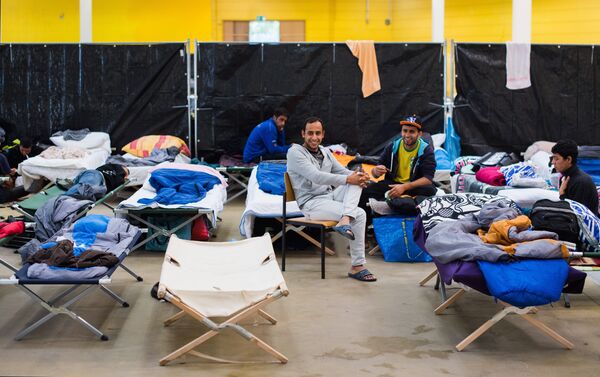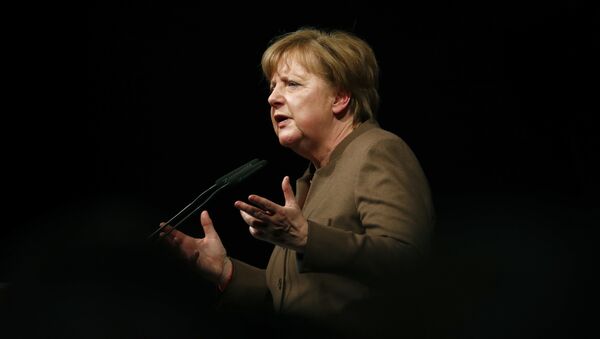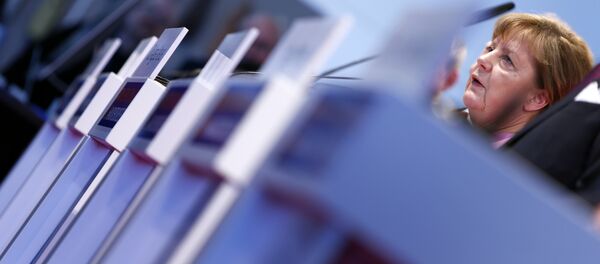Merkel is facing the biggest test of her political career, facing criticism from within Germany as well as beyond over her handling of the refugee crisis. From the moment she declared Germany's doors open to refugees — setting of a huge mass movement of people from warzones such as Syria, Iraq and Afghanistan — she is seen as the instigator of the refugee crisis in Europe.
The German chancellor portrayed herself as carrying the banner for Europe and beyond, telling a rally in Halle in the state of Saxony-Anhalt:
"We will have to take on more responsibility in an open world for what happens outside our European border."
She is battling to keep her coalition government together, following a series of disagreements over her refugee policy. She is at odds with her CSU coalition sister party leader, Horst Seehofer, who — as Bavarian governor presiding over the weight of migrants moving to Germany through the West Balkan route and Austria — has called for her to set a cap on the number of refugees Germany will accept.
Bavaria's Seehofer meets Merkel over refugee crisis at Chancellery https://t.co/DxgniDRhiO
— Ruptly (@Ruptly) 2 March 2016
She is struggling to counter the growing anger within Germany about more than one million migrants the country has accepted since January 2015. Many of the federal sates are struggling to pay for the increased administration of housing and caring for the refugees. She has also been criticized for failing to accelerate deportation proceedings against those refused refugee status.

Meanwhile, she is facing opposition from a number of countries over her call for a pan-European solution to the problem. Austria and the Balkan states have already agreed to close their borders, with Bulgaria and Macedonia sealing off the Greek border — trapping tens of thousands of migrants in Greece, further exacerbating the crisis for Athens.
Schengen and Dublin Failures
By announcing that Germany would take in refugees, she effectively ripped up the Dublin agreement — whereby migrants are processed at the point of entry into the Schengen borderless zone — leading to migrants spilling over the Schengen borders and making their way to Germany, Sweden and other countries where they then have to be processed.
Her backing of the plan for the EU to pay Turkey US$3.35 billion to control its border has failed to work so far — with Ankara showing little effort to stem the flow of refugees across its border — distracted as it is with the ongoing war in neighboring Syria and the ongoing battle with the PKK within Turkey.
Seehofer — Merkel's partners in the alliance between her CDU and his CSU party — told Der Spiegel:
"We can't demand that other countries solve our problems! The Swedes have taken action, the Danes have taken action, the Belgians have taken action. It's only here that things are completely different.
"If it continues like this, we will reach the ceiling I proposed, of 200,000 per year, in March and there is a danger that by the end of the year we will once again have a million refugees in the country. I am just soberly describing reality. You can run away from reality for a time because it doesn't fit into your political world view," Seehofer said.
Merkel's call for Germany to play a leading role — not just in Europe, but beyond its borders — will be seen by many as an attempt to portray herself as a strong world leader at a time when she is losing political value both at home and abroad and ahead of regional elections next week which may damage her coalition government and mar her chances at the federal elections in 2017.



